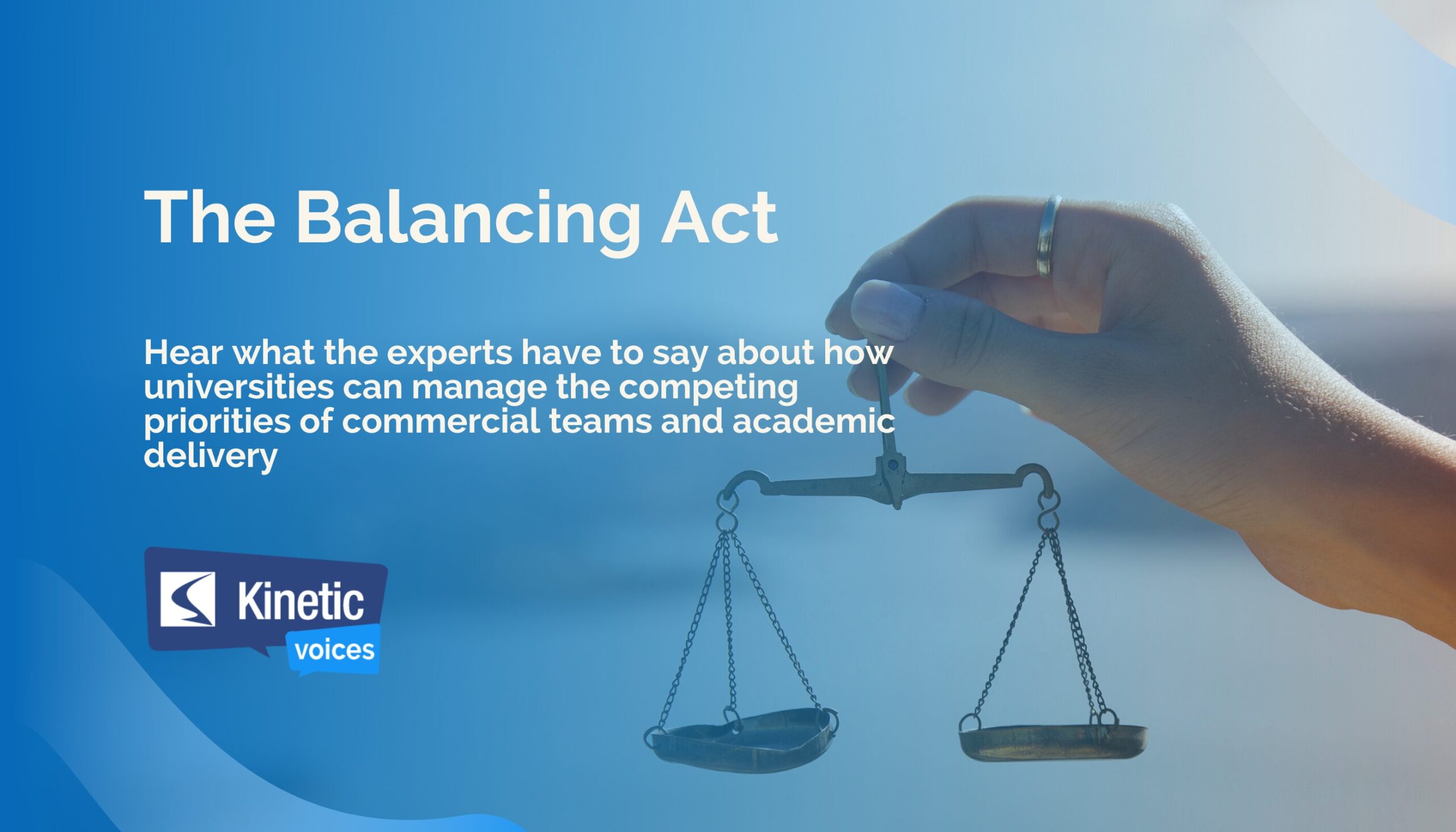It’s a long-standing competition: the race between the university commercial teams and academic staff. The former focuses on generating revenue, while the latter is all about teaching and research. And these goals can sometimes feel irreconcilable.
“It’s complex to exist commercially in an institution with a matrix of departments of hierarchy and importance,” says Rachael Lee, Membership Director at Academic Venue Solutions.
“As a commercial entity, you have a budget that you need to achieve, so you want to act like a commercial entity. You have a sales strategy, you have a marketing strategy, and you understand your goals and how you’re going to achieve that number.”
“What you aren’t prepared for are the sudden layers of intricacy that start to present themselves throughout that year, one of which is that some of those assets might be taken away from you for the greater good, which is among other things, for the primary role of student use or benefit.”
“Academic departments can also be protective over their spaces and reluctant to open them up commercially because they don’t see the benefits, so there’s ongoing conflict.”
– Rachael Lee
That can mean customers submitting an enquiry about space, for example, and being left in limbo as commercial staff try to get an answer from multiple stakeholders (in contrast to other commercial spaces, such as hotels, which can say yes or no immediately).
“It’s often very difficult because there aren’t resources or solutions to make everything run smoothly,”
“Stakeholder engagement is quite difficult for the commercial people and the teams that we deal with.”
– Rachael Lee
For Amanda Pettingill, Catering, Hospitality and Conferencing Director at the University of Nottingham, the presence of a purpose-built conference centre means they can “commit early for clients and secure business”.
“However, there are requests from internal clients who want to utilise the space free of charge,”
“This creates some friction, which means I need to explain that the area is for commercial use as the profits we make are fed back into the university accounts and invested in student facilities.”
“We do need to compromise on occasion, as being part of the university means that there are agreed key dates within the calendar where all other elements are secondary, such as graduation and open days, where we prioritise spaces for supporting the student experience,”
“That can be a source of tension, but it’s for the greater good of the university, so it’s not a bad one.”
– Amanda Pettingill
Jo Hardman, Director of Commercial Services at Lancaster University, has been on both sides of the line.
“There is a sense that there’s something slightly dirty about commercial activity and it’s a bit beneath us, even though unless you bring money in, no one gets paid.”
– Jo Hardman
But Jo’s approach to bridging the divide is a simple one.
“I have a phrase: make friends. You need to explain it to people. One of the problems is that those competing priorities will sometimes conflict, but we can be much, much smarter about it – what we need is more open systems and open conversations about how you make it work.”
– Jo Hardman
Rachael Lee recommends taking a strategic approach where possible to smooth the process.
“You can play to the strengths of your university, which again takes time and resources and a certain type of person, but then you can approach the departments where they want to shine,”
“For example, say your strength is sustainability. If your commercial department says ‘We’re going to go out and look for 10 sustainable conferences that will play to those strengths.’ There’s much more of a synergy there than just saying ‘We’re just going to go out and get as much business as we possibly can.’”
– Rachael Lee
And, she says, it’s important to remember that each university is different, so will have its issues and solutions.
“Some vice-chancellors are far more commercially driven than others,”
“There are 143 universities in the UK, so there could be 143 different ways of thinking, where the emphasis on bringing that money in is very different.”
“But I don’t believe it’s difficult to turn on that revenue. I don’t. And I think you can start slowly with your summer. And as long as you bring the right stakeholders on board with you, it will work.”
– Rachael Lee
The competition between commercial teams and academic staff is nothing new, but it is becoming more pronounced as universities face increasing financial pressures. While there is no one-size-fits-all solution, taking an intelligent, proactive approach to beginning teams together – with a focus on communication above all – will enable them to work together better and benefit the entire university community.






